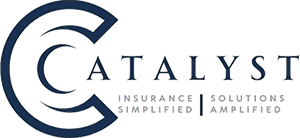Your Guide to Commercial Insurance Options
Don Malcolm | Feb 12 2025 18:00
Businesses, big or small, require protection from unexpected risks. Whether it’s property damage, liability claims, or employee-related issues, commercial insurance options ensure financial security and operational stability. But with so many choices available, how do you determine which policies suit your business best? This guide explores the key commercial insurance options, who needs them, and what to consider when selecting coverage.
1. General Liability Insurance
Who Needs It?
Virtually all businesses—especially those with physical locations, customer interactions, or contractual obligations—should have general liability insurance.
What It Covers:
- Bodily Injury: Covers medical expenses if someone is injured on your business premises.
- Property Damage: Protects against claims if your business causes damage to someone else’s property.
- Legal Fees: Covers attorney costs and settlements in liability lawsuits.
Key Considerations:
- Ensure policy limits align with your industry risks.
- Some landlords or clients may require a minimum level of coverage.
2. Commercial Property Insurance
Who Needs It?
Essential for businesses that own or lease a physical space, such as offices, retail stores, warehouses, or manufacturing facilities.
What It Covers:
- Building Structure: Protects against damage from fire, theft, vandalism, or natural disasters.
- Equipment & Inventory: Covers business assets like furniture, computers, and stock.
- Loss of Income: Helps recover lost revenue if property damage disrupts operations.
Key Considerations:
- Check for exclusions like flood or earthquake damage, which may require additional coverage.
- Consider replacement cost vs. actual cash value policies.
3. Workers’ Compensation Insurance
Who Needs It?
Mandatory in most states for businesses with employees. Even small businesses with a single employee should consider it.
What It Covers:
- Medical Expenses & Lost Wages: Pays for work-related injuries or illnesses.
- Disability & Rehabilitation: Provides support for employees who need ongoing care or can’t return to work.
- Legal Protection: Covers lawsuits related to workplace injuries.
Key Considerations:
- Compliance laws vary by state—check your local requirements.
- Risk-prone industries (construction, manufacturing) often face higher premiums.
4. Professional Liability Insurance (Errors & Omissions – E&O)
Who Needs It?
Service-based businesses such as consultants, lawyers, accountants, financial advisors, and healthcare providers.
What It Covers:
- Negligence Claims: Protects against accusations of professional mistakes or failure to deliver promised services.
- Legal Fees & Settlements: Covers defense costs and damages if sued by a client.
Key Considerations:
- Tailor coverage to industry-specific risks.
- Some industries require E&O insurance as part of licensing requirements.
5. Commercial Auto Insurance
Who Needs It?
Businesses that own vehicles or require employees to drive for work (excluding commuting).
What It Covers:
- Vehicle Damage: Covers repairs after accidents, vandalism, or theft.
- Liability Protection: Pays for damages if your driver is at fault in an accident.
- Medical Expenses: Covers injuries sustained by employees or third parties in a crash.
Key Considerations:
- Personal auto insurance does not cover business-related driving.
- Policy needs depend on vehicle usage frequency and industry requirements.
6. Cyber Liability Insurance
Who Needs It?
Businesses handling customer data, payment information, or operating online stores.
What It Covers:
- Data Breach Response: Covers notification costs, credit monitoring, and public relations management.
- Cyber Extortion: Protects against ransomware attacks.
- Legal Fees: Covers lawsuits related to data privacy violations.
Key Considerations:
- Cyber threats are increasing—small businesses are frequent targets.
- Evaluate coverage for third-party vendors handling your data.
7. Business Owner’s Policy (BOP)
Who Needs It?
Small to medium-sized businesses looking for bundled coverage.
What It Covers:
- General Liability + Property Insurance: Combined into one affordable package.
- Business Interruption Coverage: Helps cover lost income due to covered events.
Key Considerations:
- Ideal for cost-conscious businesses seeking comprehensive protection.
- Coverage limits may need adjustments for larger companies.
8. Product Liability Insurance
Who Needs It?
Manufacturers, wholesalers, distributors, and retailers selling physical products.
What It Covers:
- Defective Products: Protects against lawsuits from product malfunctions or failures.
- Injury & Property Damage Claims: Covers damages caused by a faulty product.
Key Considerations:
- Coverage depends on industry and product risk level.
- Recalls may require additional specialized coverage.
How to Choose the Right Commercial Insurance Options
When selecting commercial insurance options, keep these factors in mind:
- Industry Risks: Understand the unique liabilities of your field.
- Legal Requirements: Some policies (e.g., workers’ comp) are mandatory in certain states.
- Business Size & Structure: Coverage needs differ for startups vs. established enterprises.
- Budget vs. Risk Tolerance: Balance cost with necessary protection—opting for low premiums might mean insufficient coverage.
- Claims History: Insurers assess previous claims when setting premiums, so risk management can reduce costs.
Expert Guidance is Key
Navigating commercial insurance options can be complex. The Catalyst Insurance Broker specializes in tailoring policies that align with your business goals and industry regulations.
Contact us today for a consultation and secure your business with confidence!
